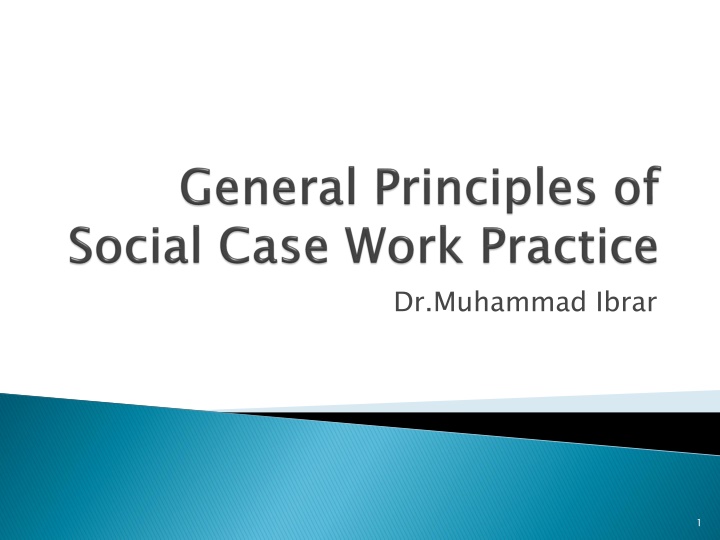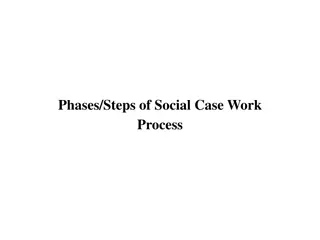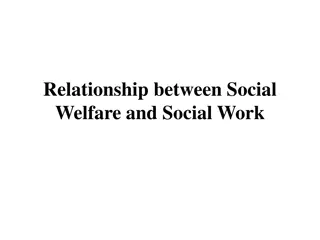Principles of Effective Client-Worker Relationship in Social Work
Understanding the principles of acceptance, communication, individualization, participation, confidentiality, self-awareness, and self-discipline is vital in establishing a positive client-worker relationship in social work. The initial interaction between the client and worker sets the tone for mutual acceptance and rapport. Through acceptance and clear communication, the worker helps the client identify and address difficulties, enabling them to plan necessary steps for adjustment based on individual needs and circumstances.
Download Presentation

Please find below an Image/Link to download the presentation.
The content on the website is provided AS IS for your information and personal use only. It may not be sold, licensed, or shared on other websites without obtaining consent from the author.If you encounter any issues during the download, it is possible that the publisher has removed the file from their server.
You are allowed to download the files provided on this website for personal or commercial use, subject to the condition that they are used lawfully. All files are the property of their respective owners.
The content on the website is provided AS IS for your information and personal use only. It may not be sold, licensed, or shared on other websites without obtaining consent from the author.
E N D
Presentation Transcript
1. Principle of acceptance 2. Principle of communication 3. Principle of Individualization 4. Principle of Participation 5. Principle of confidentiality 6. Principle of self-awareness and self- discipline of the case worker 2
The first time when the client and worker met each other, they don t know nothing about each other. The client has uncertainty in his mind regarding the worker. The case worker on the other hand meets the client equipped with professional experience. Thus the relationship between them when begins is unequal. 3
The case worker therefore should approach the client understanding of his feelings. He should accept the client as he is. When the client-worker relationship is formed and is accepted mutually, a rapport is established. A case worker must be accept an individual as a person of worth & dignity , not treat as a problem and always accept ones positive feelings and negative feelings. with a genuine interest and 4
In the interaction that occurs between the worker and the client, there may be agreement or disagreement about the issue they discuss. But when the rapport has been established, each understands what the other means by what he says and thus during his initial interview, the client explains the difficulties he has. The worker through his acceptance, psychological makes the client responsive and thereby wins his confidence. support and understanding 5
He also makes clear in what ways the client can be served by the agency and what the agency expects of the client in view of his situation. When the client sees the problem and the means of tackling it, the worker enables him to plan the necessary steps for adjustment. 6
It means that the case worker accepts each client as an individual, as a person in situation involving a unique combination of biological, psychological personality, problems are different from those of all other human beings. Individualization means explore an individual not from a single aspect but from various aspects. and perception, social factors. resources His and 7
Every Individual is different from others & unique in itself. Problem of every individual is different from another & depend upon her/his intelligence, so the mode of helping (Technique) must be according to the Intellectual level, socio-economic situation and resource. ego strength, ones capacity and 8
The purpose of social case worker process is to engage the person himself in coping with problems that confront him. With this client- worker participation is encouraged. His problem is his own; its alleviation should therefore be devised by him. relationship, the client s active 9
If the client is to participate fully in the solution of his problem accepting the case worker as a trustworthy and competent person, he must be guaranteed of the confidentiality of his information disclosed to him. What the client tells the case worker is never be discussed outside the professional relationship. 10
The case worker must be aware of his own feelings and limitations and in building a professional relationship, he must be able and prepared to control himself. His personal likes and dislikes, his own perception or judgment must not affect his professional dealings. 11






















